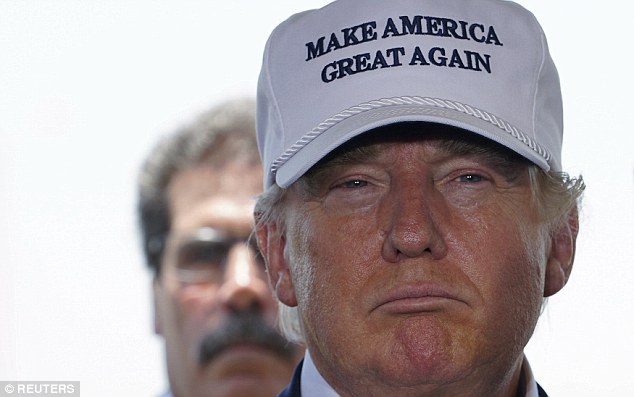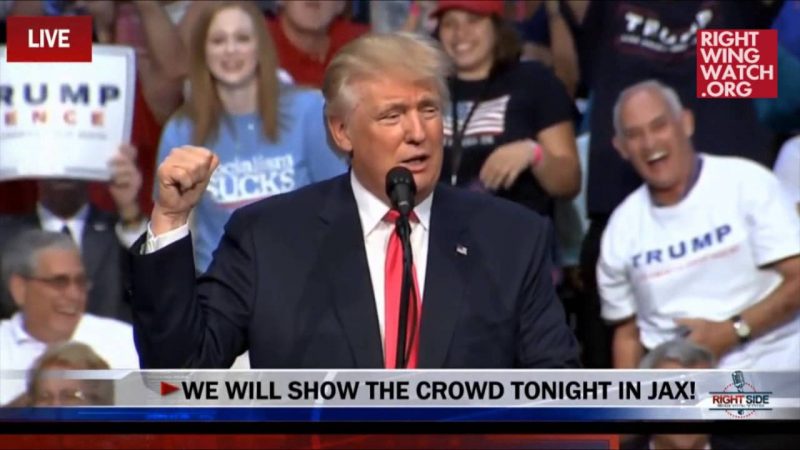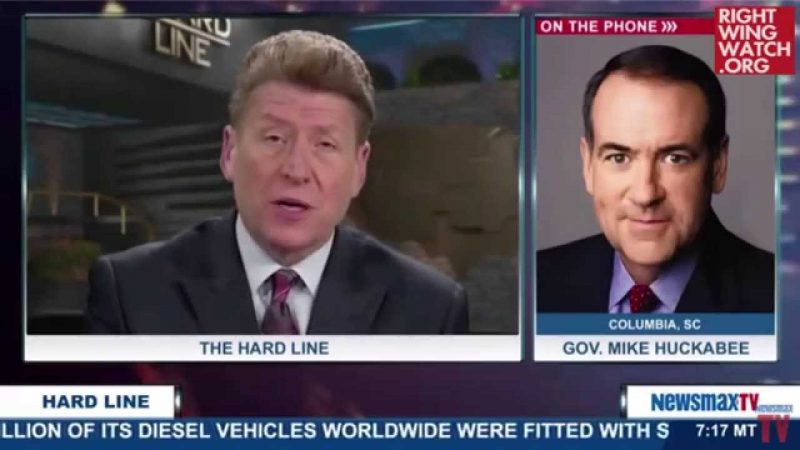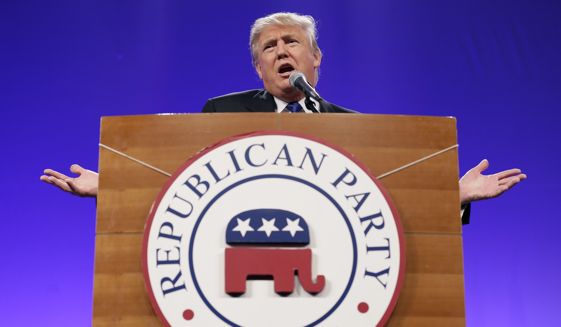After a recent event in Orlando in which he tried to wooChristian nationalists and anti-gay activists, Donald Trump sat down for an interview with Steve Strang, the founder of the conservative Christian magazine Charisma, which Strang released as a podcast yesterday.
Strang, who has provided Seven Mountains dominionist Lance Wallnau with a platform to repeatedly claim that Trump has been anointed by God for the presidency, ended his podcast by urging Christians to vote for Trump and similarly claiming that the candidate has been “raised up” by God. He said that Trump would be on the cover of October’s issue of Charisma, which will include a transcript of the interview.
In the interview with Strang, Trump repeated many of the talking points he has used to win over conservative evangelicals, including boasting of his vow to repeal IRS rules that prevent churches from retaining their tax-exempt status if they openly endorse or oppose candidates, talking about how he told his children to stay away from drugs and alcohol, and claiming that he would be better for Israel than President Obama.
Trump further attempted to polish his evangelical bona fides when he agreed with Strang that the U.S. was built on “Judeo-Christian values,” a loaded term coming directly after a meeting organized by an activist who argues that the U.S. was founded explicitly to advance the Christian faith.
“Before you spoke [at the Orlando meeting], they had a speaker talking about Judeo-Christian values in the founding of the nation and so forth,” Strang said. “In our secular society, a lot of people discount that. Do you believe that America was founded on Judeo-Christian principles?”
“Yeah, I think it was,” Trump responded. “I think, to a large extent, when I look at football coaches being fired because they held a prayer on the field, like yesterday, I think it’s absolutely terrible, I think it’s a terrible thing. I see so many things happening that are so different from what our country used to be. So religion’s a very important part of me and it’s also, I think it’s a very important part of our country.”
When Strang asked Trump to give conservative pastors advice on how to advocate for his candidacy, Trump gave a typically vague response.
“Well, I’m going to get the job done,” he said, “I’m going to do a great job for religion and for the evangelicals. I’m going to do a great job. And that’s why we got a standing ovation from pastors, who don’t give much standing ovations because they’ve heard a lot of people speak, so that was a great honor. But I will do a great job, I’ll get the job done and I’ll get it done properly and that will be a great thing for the evangelicals.”
Earlier in the interview, Strang asked Trump whom he would “reach out to for spiritual guidance” as president.
Trump replied that he has “so many friends” within the evangelical community, and named a few of the small cohort of evangelical leaders who have been supporting his candidacy since the GOP primary, including Robert Jeffress and Paula White, a prosperity gospel televangelist who Trump said was at the Orlando event. He also mentioned evangelist Franklin Graham, who has not made a presidential endorsement.
He noted that “I really like to stay with people who have been so loyal.”







